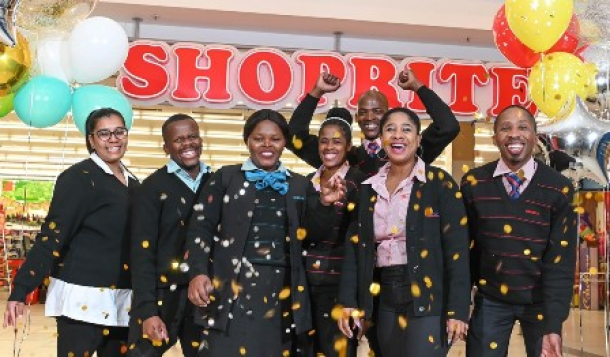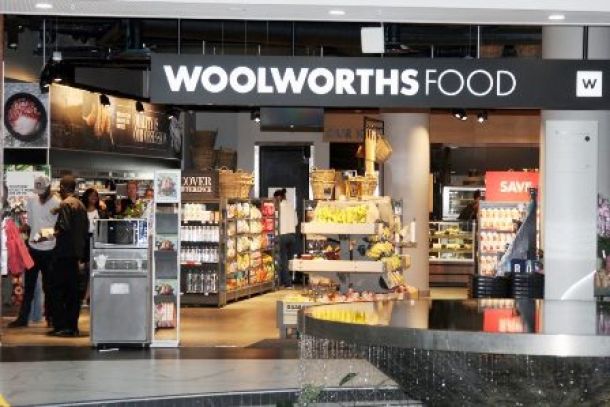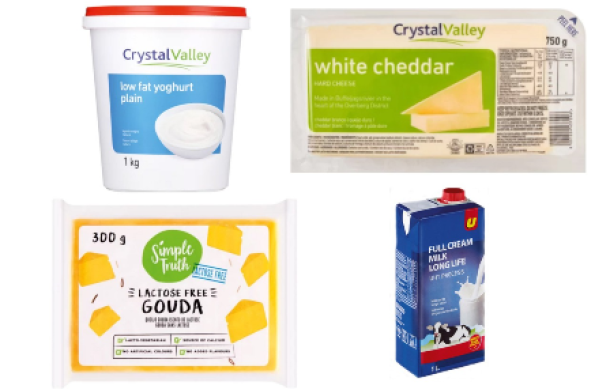How Clover came to yield milk again
The South African dairy industry has had its ups and downs, but few realise how close the country came to losing it almost entirely.
At the EY World Entrepreneur of the Year awards in Monaco in 2016, Clover CEO Johann Vorster revealed how the dairy industry was almost lost between the shoals of a terrible business model and the reefs of asset strippers. The effect would have been "disastrous" and the dairy industry would have been reduced to a state of subsistence.
Clover is now hitting its straps, with profitability at record levels and it is preparing a huge new "dairy industrial park", which will include the continent’s first baby food processor.
The transition of this country’s agricultural co-operatives into companies has been one of the undercurrent features of the domestic agribusiness sector in the past two decades. Co-ops emerged out of the apartheid era with a terrible reputation for being stultifying behemoths, typically run by farmers whose interests were basic and one-dimensional.
As an important political constituency in the old regime, co-ops would often seek support from taxpayers whenever they got into financial trouble, which they got into quite frequently.
The dairy co-op NCD, the owner of the Clover brand, was little different. It was owned by 32,000 farmers, and Vorster says its biggest problem, like many co-ops, was that it was supply-driven.
The people running the business were essentially cost managers who worked on behalf of the farmers. Their job was extremely simple: get rid of the milk. The co-op was a classic "price-taker".
"There was no commercial intent," Vorster says. The co-op had developed some brands, but the level of innovation was slight.
On the other hand, there was at the time a lot of money to be made by stripping out the profitable aspects of the co-ops, and NCD had two successful businesses: the largest cold storage distribution business in SA and a very profitable "dairy-mix" beverage business centred on the Tropica brand.
Vorster says he realised the business was in trouble when he joined it in September 2000, but did not know the extent of the problem. That became brutally obvious a few months later, when all the banks pulled their facilities just before Christmas. Clover could not make its December 17 salary bill. Gearing was 161%, and disaster loomed.
He was forced to chase down the risk manager of Absa and he managed to get a commitment to support the turnaround, which came with a R200m extension in facilities.
"It was a defining moment for us," he says. It was obvious that the business model had to be changed from top to bottom.
The first thing was to change the obligation on the company to accept all the farmers’ milk. Vorster had to use his powers of persuasion to make this drastic change.
In 2005, he called farmers to a meeting and told them Clover would only buy milk it could sell profitably. He prevailed, and the farmers voted for the measure unanimously.
"I’m not sure they really knew what they were getting into, but they trusted me. That had some repercussions later when we couldn’t sell some farmers’ milk."
The second element of the strategy was to begin building brands in earnest, and that meant retaining brand segments only where Clover could be number one or a strong second. That meant ditching bulk cheese, bulk butter and some milk powders.
The next step was listing. Between 2006 and 2009, Vorster, now a big shareholder, made 18 different proposals to the board. They turned all of them down.
He arrived for the 19th meeting dressed in a driver’s racing suit, wearing a racing helmet and with the theme song of the Rocky Balboa boxing movies, Eye of the Tiger, playing in the background. "You have hit me so many times so hard on the head, this time I have come prepared," he told the board.
...
THEY finally relented and agreed to his proposal to list the company. The sticking point had always been to what extent the farmers were prepared to relinquish control. The final proposal suggested listing 35% of the equity.
But there was a problem. In 2009, there was an international downturn, and Clover made a loss that year. The company’s adviser suggested holding off on the listing for two years. Vorster did not agree.
At the time, the fight against asset strippers was becoming intense. Vorster says the cut-and-run argument for saving the profitable elements of the business was a huge problem. But if he had relented, the whole dairy business would have been imperilled.
"It really would have been a disaster for the dairy business."
He pressed hard, and the company was listed in three months. This provided a bulwark against the asset strippers and put money in the pockets of farmers. Farmers’ shares were worth 5c, and the listing price was just more than R10. The share now trades at just less than R19, at a modest 10 times annual profits.
"Importantly, the right people made money: the farmers who started the business, and they were able to use the cash from listing to invest in their farms, which increased employment," he says.
The listing also allowed the company’s black-empowerment shareholder, Hosken Consolidated Investments, to exit the business at a healthy return.
Since the listing, changes have come thick and fast. Of the original board of 18, only one remains. Of the original 13 people on the executive, only two people remain.
"We had to bring in independents, we had to improve our corporate governance and make it a convincing corporate entity," Vorster says.
The results have been staggering. Dairy products have declined from 100% of the company’s income mix to about 65%. Turnover is R11bn and operating profit about R550m. This 5% margin is high in international terms, where margins are typically somewhere between 3% and 6%.
Clover has added a host of new brands such as Manhattan Ice Tea and brand extensions including sliced cheeses and milk variants. It has also become a distributor for products such as Nestlé Pure Life water, Red Bull, two other diary brands — DairyBelle and Good Hope — and carbonated soft drink maker Frankie’s.
The awards have been flowing too. Clover made the top 30 most well-known brands a few years ago and came in the top five last year. It was the winner of Reader’s Digest’s Most Trusted Brands for 2015.
After years of staff uncertainty, Clover was ranked third in auditing firm Deloitte’s Best Company to Work for survey in 2014. The crowning achievement was winning the 2016 Global RepTrak Pulse survey for the most reputable company in the country.
The next big step for Clover — the "dairy industrial park" — is planned for construction in Mooi River. It will cost R1.5bn and Vorster says it has strong government support, but still requires some capital support and some "off-take" support from partner industries.
The park, if it gets built, will produce baby food products and will provide a host of export opportunities and import replacement opportunities because no baby food base products are made in Africa.
The company is also extending its corporate social investment (CSI) project, which involves discovering social champions in rural villages, who are provided with training and financial support.
The Mama Africa programme is award-winning and a benchmark for CSI programmes, but started out initially as a scheme to help abandoned children.
"We just wanted to do some good," Vorster says.
News Category
- International retailers
- On the move
- Awards and achievements
- Legislation
- Wine and liquor
- Africa
- Going green
- Supplier news
- Research tools
- Retailer trading results
- Supply chain
- Innovation and technology
- Economic factors
- Crime and security
- Store Openings
- Marketing and Promotions
- Social Responsibility
- Brand Press Office
Related Articles

Shoprite Group earns Top Employer status for 2024

Woolworths snaps up four awards at the annual P...

Shoprite, Usave and Checkers private label prod...

Shoprite’s Xtra Savings shines at 2024 Internat...


